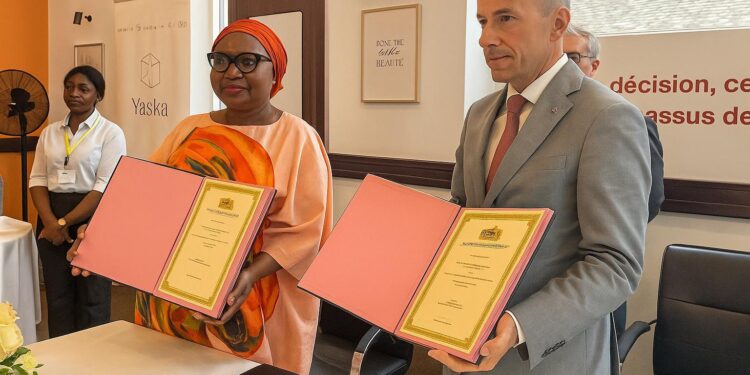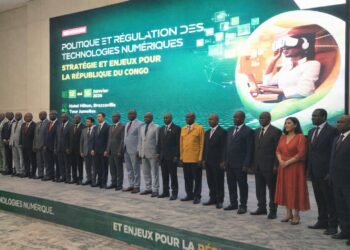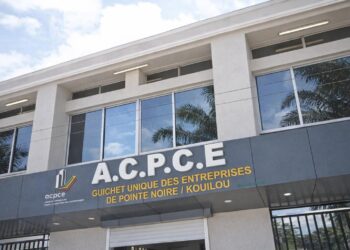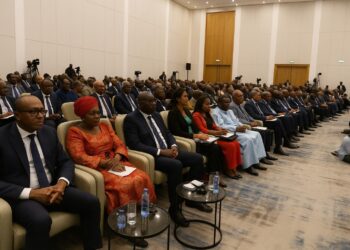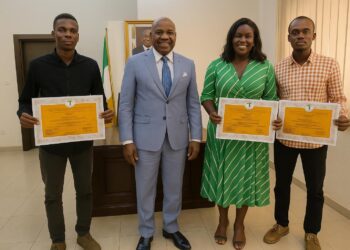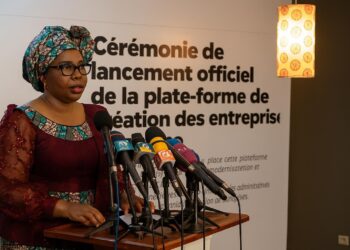Youthful innovation wave in Brazzaville
Brazzaville’s fast-growing innovation scene reached a new marker as the 2025 Yasika programme closed on 31 October. Backed by Eni’s entrepreneurship school Joule, the cohort showcased how targeted incubation can translate youthful ingenuity into market-ready solutions across critical value chains.
The ceremony gathered the ten participating start-ups, local officials, financiers and development partners, offering a rare panoramic view of Congo-Brazzaville’s early-stage ecosystem. Government representatives underscored the initiative’s alignment with the national strategy for youth employment and transition to a diversified, low-carbon economy.
Cohort achievements and pilot contracts
Yasika, meaning “seed” in Lingala, picked ventures led by founders aged 26-35 after reviewing over 400 applications, organisers confirmed (ADIAC, Eni press release). Participants enjoyed technical workshops, market-validation sprints and one-to-one mentoring throughout the six-month acceleration.
Four of the ten companies secured pilot contracts with Eni Congo, granting early revenue streams and visibility. The oil and gas major’s purchasing power served as an anchor client, de-risking business models and encouraging commercial lenders to open conversations on working-capital facilities.
A tablet-based platform called AgriConnect links smallholders to processors and supermarkets, giving real-time price signals and logistics booking. Another venture, BioFuel Tech, turns cassava peels and sawdust into briquettes that burn cleaner than charcoal. DroneVision provides aerial imagery that farmers use to calibrate fertiliser and irrigation.
Priority sectors shaping a circular economy
Eni Joule’s curriculum drew heavily on lean-startup methods while integrating modules on regulatory compliance, intellectual-property filing and environmental, social and governance reporting, topics investors now routinely scrutinise. Facilitators included Congolese academics, Italian engineers and executives from regional venture funds such as MiDA and Saviu.
A mid-programme survey showed 90 percent of founders strengthened financial models and 70 percent won clients outside their districts. These figures rival outcomes in Nairobi and Accra incubators, the African Development Bank’s 2024 benchmark notes.
Importantly for policymakers, Yasika sought to entrench circular-economy thinking. Start-ups were asked to quantify carbon abatement, waste diverted or water saved. Preliminary monitoring suggests the portfolio could cut 1,500 tonnes of CO₂-equivalent annually, modest yet meaningful relative to the scale of Congo’s industrial baseline.
Finance Minister Rigobert Roger Andely welcomed the findings, noting that green entrepreneurship dovetails with Congo’s recent ratification of the Climate Change Act and the Forest Code revision. He hinted that eligible ventures may access tax incentives under the upcoming Startup Act, currently in parliamentary review.
Skills, finance and infrastructure enablers
Beyond regulatory sweeteners, infrastructure remains pivotal. The cohort reported average broadband speeds of eight megabits per second during field testing, a constraint for data-heavy drone analytics. The telecoms ministry confirmed that Phase II of the national fibre backbone should lift rural connectivity by mid-2026.
Concerning finance, two ventures secured letters of intent from the African Guarantee Fund, enabling commercial banks to extend loans at ten percent interest, below the usual micro-enterprise rate of 16 percent. Discussions with the Fonds National de Développement also advanced, according to officials present.
The programme’s pedagogy rests on peer-to-peer learning. Weekly “sandbox” sessions allowed founders to critique prototypes under Chatham House rules, fostering candid dialogue rarely possible in formal accelerators. Participants interviewed describe the environment as energising and starkly different from conventional business-plan competitions.
Public-private synergies and diaspora input
While Eni provided stipends and workspace, several partners contributed domain expertise. The United Nations Development Programme showcased its digital agriculture dashboard, and the World Bank-funded PAGE project explained access to the national supplier database for public procurement opportunities above CFA 50 million.
Congolese diaspora networks also played a part. Senior software architects residing in Montreal and Paris delivered code-review clinics via video link, reducing debugging time for app-based solutions. Their involvement illustrates the administration’s call to harness external talent without triggering permanent brain drain.
By the final demo day, the cohort had attracted an estimated 1.4 billion CFA francs in combined customer commitments and soft funding, based on figures shared on stage. Roughly forty percent relates to agriculture supply-chain platforms, underlining food-security priorities flagged in government policy papers.
Pipeline for 2026 and investor outlook
Looking ahead, applications for the 2026 intake remain open until 15 January. Organisers have already logged more than one hundred submissions, suggesting pent-up demand. Selection criteria will include demonstrated traction, a credible path to profitability and alignment with the Congo Vision 2025 economic roadmap.
Investors monitoring the country’s LNG build-out or timber value-addition initiatives increasingly view tech start-ups as complementary avenues for growth. Venture activity can sharpen service delivery in energy, logistics and forestry while nurturing a skilled workforce capable of supporting large-scale industrial projects.
From an ESG standpoint, Yasika offers a living laboratory for integrating climate goals with inclusive development. Continued collaboration between corporates, donors and ministries could help scale proven models nationally, reinforcing Congo-Brazzaville’s ambition to remain a climate-positive forest nation and an investment destination of choice.

































